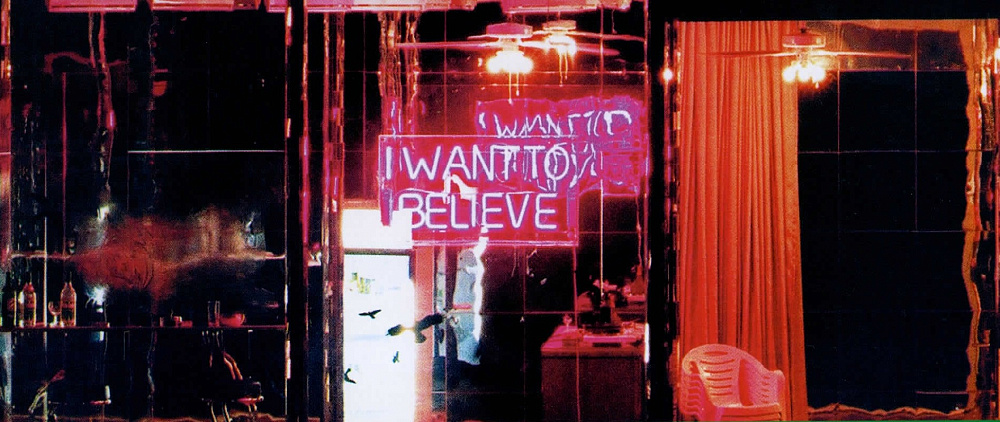| Director | Frank Castorf |
| Set and Costume Design | Bert Neumann |
| Videodirectors | Jan Speckenbach, Joerg Broksch |
| Light | Lothar Baumgarte |
| Cast | Martin Wuttke, Kathrin Angerer, Milan Peschel, Joachim Tomaschewsky, Henry Huebchen, Marc Hosemann, Irina Potapenko. Hendrik Arnst. Kurt Naumann, Michael Klobe, Joy Kristin Kalu, Bernhard Schuetz |


Frank Castorl was born in 1951 in Berlin (GDR). In 1981-85 after training in the theatre department of the Humboldt University in Berlin, worked with a permanent troupe of actors at the theatre 'Anklam' (productions: 'Othello; by W. Shakespeare, 'Battle Assignment' by H. Mueller 'Nora', by H. Ibsen, 'Drums in the Night’ by B. Brecht). Then worked at theatres in the largest German cities, where he has directed 'The Enemv of the People by H. Ibsen (Karl-Marx-Stadt) The House of Bernarda Alba’ by G. Lorca (Halle), Hamlet' by W. Shakespeare (Cologne), H. Ibsen's ‘John Gabriel Borkman' (Berlin) etc. In the season of 1992-93 he became artistic director of the theatre Volksbuehne. Here he staged: King Lear’ by W. Shakespeare, ‘Night Wanderers' by I. Berg, 'The Woman from the Sea' by H. Ibsen, 'Hochreitsreise' by V. Sorokin, 'The Demons', ‘The Injured and Insulted’, and The Idiot’ based on F. Dostoevsky (together with the Vienna Festival) etc. Frank Castorf nas also staged erformances in France, Switzerland, Austria, weden. His theatre has been repeatedly invited to participate in the largest festivals, including Berlin Theatertreffen. The work of Castorf as director has been recognised by prizes and awards such as the Friedrich Luft Prize, the Friedrich Schiller Prize of the town of Mannheim, and the Prize of the International Theatre Institute (2003) 'Theatrical Miracle'.
The theatre Volksbuehne is one of the best-known theatres in Germany. The theatre's activity began with the 1890 production of Ibsen’s 'Pillars of Society' in the wave of democratization of theatre art. The basic purpose of the Volksbuehne consisted in the popularization of modern realistic drama among the German working class. During the 20th century theatrical masters worked at the theatre such as Max Reinhardt, Erwin Piscator, Benno Besson, Matthias Langhoff Christoph Marthaler, Rene Pollesch. The Volksbuehne consolidated its reputation as a socially active theatre. To the present it still remains tne centre of social attraction. Its main concern has always been to show its point of view and to excite a public polemic. In 1993 Frank Castorf became artistic director of the theatre. With Castorf's arrival the VolksbRhne acquired the reputation of a theatre of radical artistic opposition and experiment.
The Volksbuehne is open for anything interesting, even if it has no direct connection to theatre: rock music, video art, tango, politicians, philosophers, maniacs, dentists - for everything that somehow can become part of productions. In 1994 Hans Kresnik came to the Volksbuehne with his choreographers' team. For the first time a real political dance theatre appeared in Berlin, and the Volksbuehne acquired a branch. In 2000-2001 Franck Castorf began to use film-projection in his productions. At same time it brings out his first film, The Demons’. Since November 2000 the film has been shown as prologue to the performance The Demons' and later was shown several times on television. )n the theatrical season of 1992/93 according to surveys of the journal Theatre Heute' the VolksoRhne was recognised among theatre critics as theatre of the year. In the following years the theatre has received a special prize of critics of the «Berliner Zeitung». According to a survey of the “Manager Magazine» the Volksbuehne was in 2002 ‘the most innovative theatre in artistic terms’ with the most interesting repertoire.